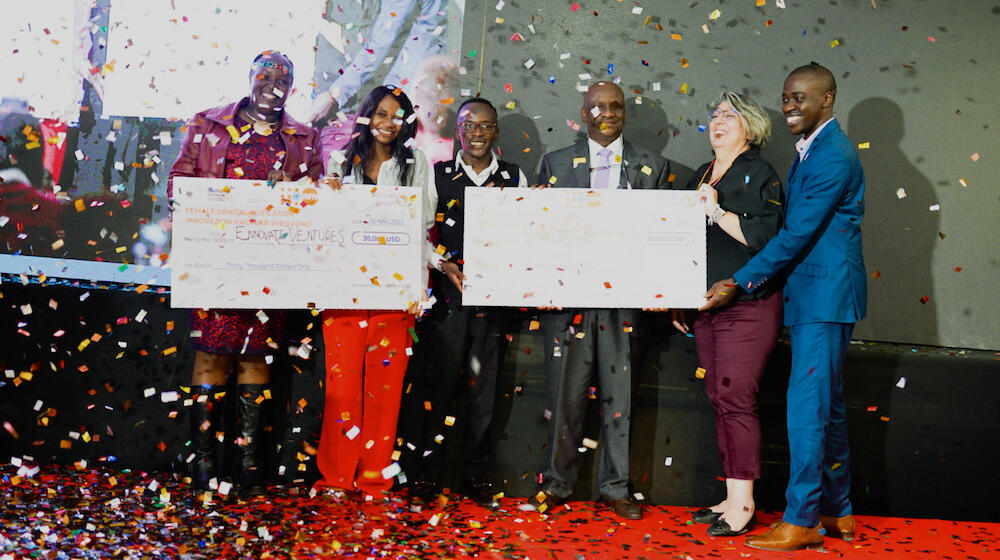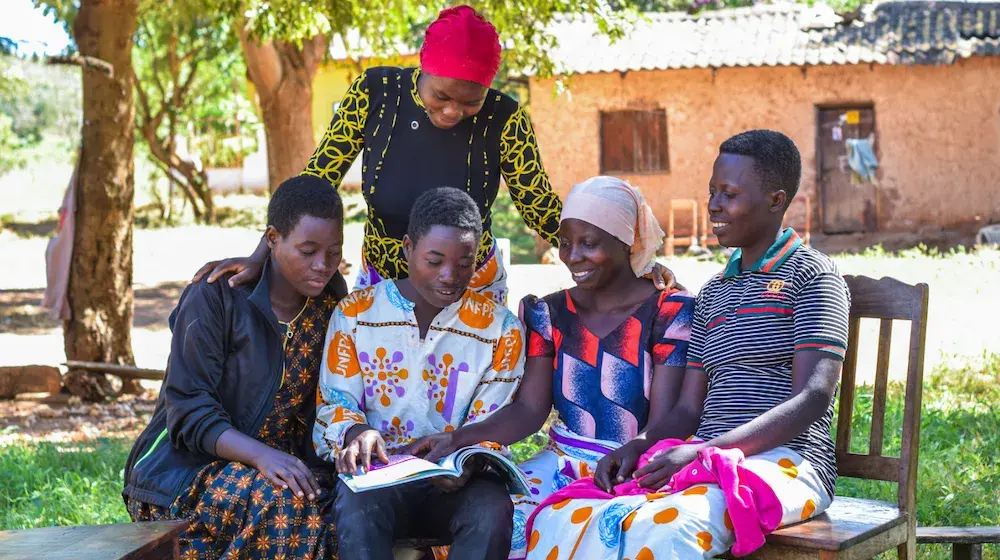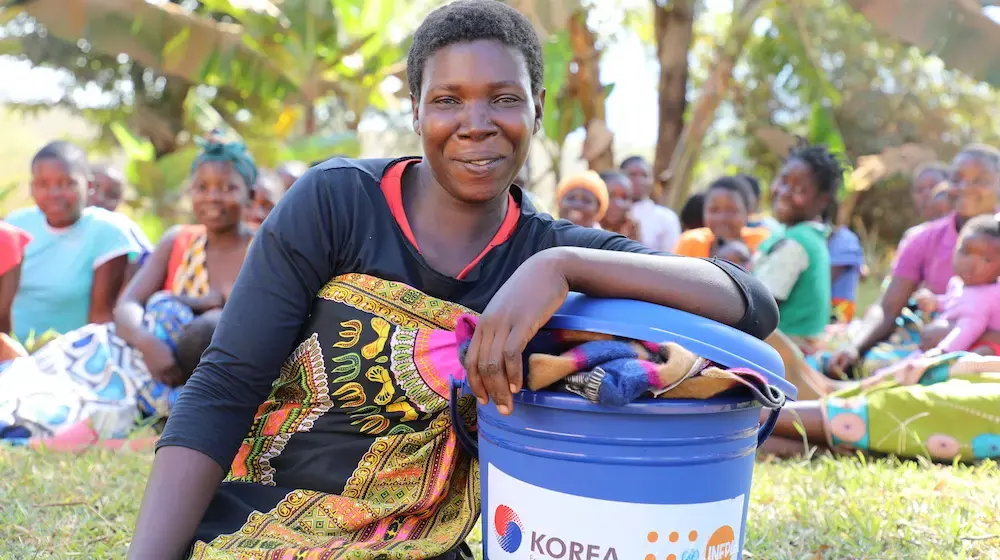NAIROBI, Kenya, 24 November 2022 -- Two ground-breaking innovative solutions for ending female genital mutilation (FGM) on the continent are the winners of UNFPA’s FGM Innovation Hacklab.
The FGM Innovation HackLab Initiative, supports Africa’s young people and youth organizations in developing innovative solutions to end FGM. The initiative was organized by UNFPA, the United Nations sexual and reproductive health agency, the Spotlight Initiative Africa Regional Programme (SIARP) and the global UNFPA-UNICEF Joint Programme on the Elimination of Female Genital Mutilation.
The winners, Mack Marangu of Enlightened Generation International, Kenya, and Glory Mlagwa of Ennovate Ventures, Tanzania, were each awarded $30,000 in seed funding. This will support the growth of their solutions, aimed at accelerating progress towards zero FGM in Africa. The winners will also receive incubation support coordinated by AfriLabs.
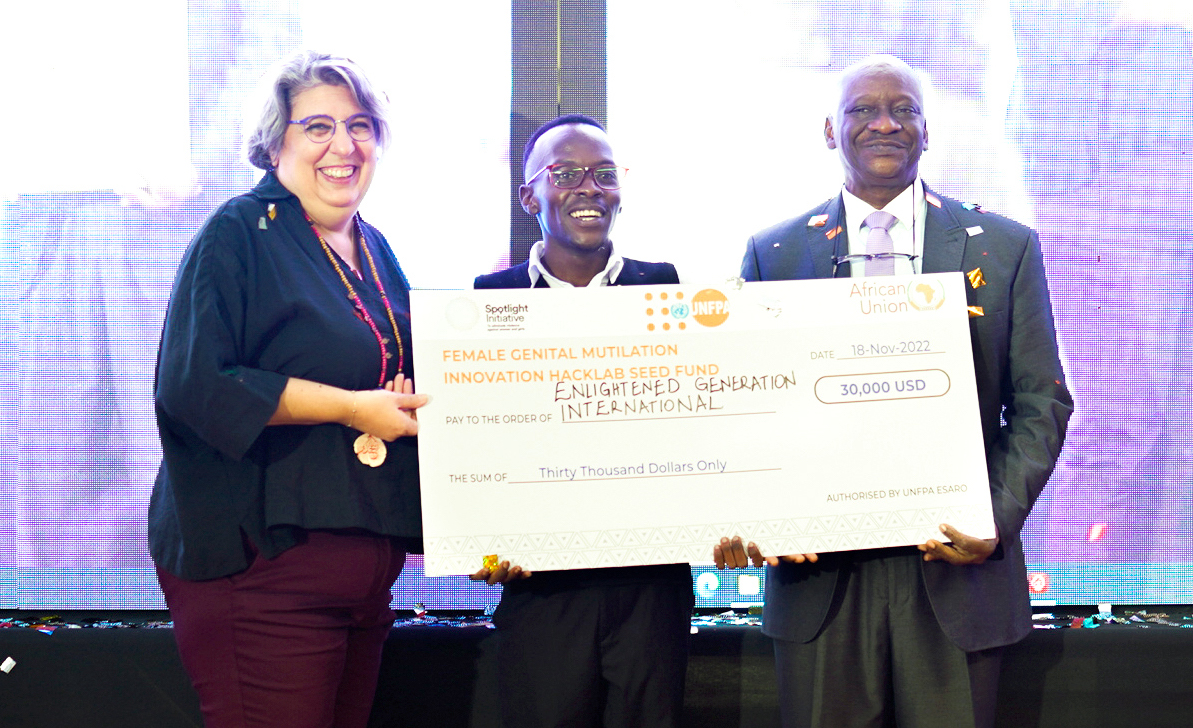
Mack Marangu’s innovation is a mobile application built to track school attendance by girls most at risk of undergoing FGM. “In areas where the practice is prevalent, school absence is one of the signs that indicates a girl is about to undergo FGM,” said Mr. Marangu. “We are looking forward to scaling the innovation to reach more communities in Kenya with the tools, to gather real-time data that can inform action to end FGM.”
The winning solution from Tanzania’s Glory Mlagwa is a platform to disseminate community health information on FGM through media, visual arts and community outreach sessions. “We owe it to every girl in Tanzania to help reach zero FGM by 2030, and we have to work together as a community to achieve this,” she said.
The winners were selected from a pool of six finalists drawn from Burkina Faso, Kenya, Tanzania, Somalia, Nigeria and Guinea.
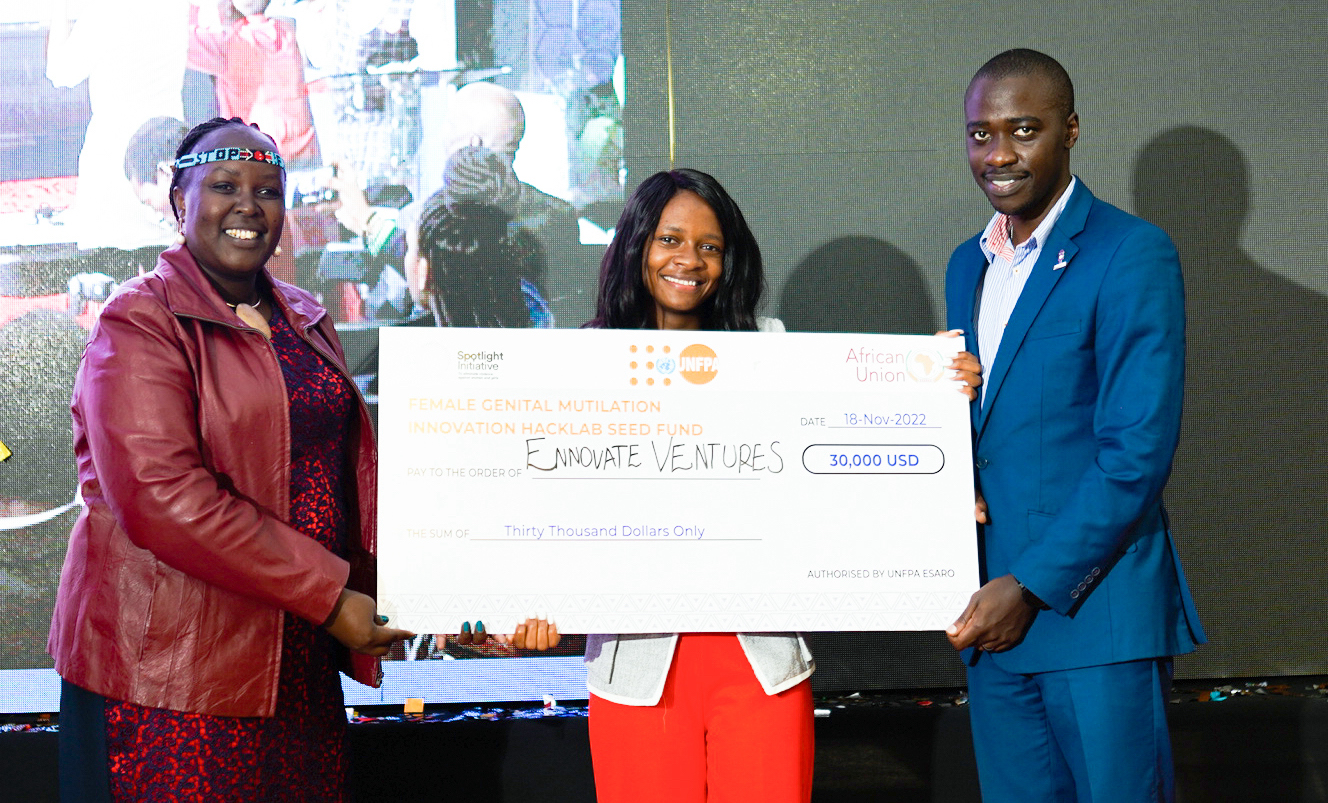
“I am inspired by the innovative ideas presented by the young people from across Africa. Each of them presents an opportunity to ensure that no girl falls into the statistics of women who have undergone FGM,” said Kenya’s Anti-FGM Chief Executive Officer, Bernadette Loloju.
The UNFPA FGM Innovation Hacklab provides a platform for young people to share innovative ideas and solutions to fast track the ending of FGM across Africa. This year, the hacklab engaged more than 100 innovation incubation/accelerator hubs across Africa, and more than 300 innovators working on achieving bodily autonomy, especially innovative solutions to end FGM. More than 300 innovators and hubs engaged on the application platform, and 31 submissions were received.
Launched in 2021, the hacklab has identified more than 100 innovative solutions, disbursed over $150,000 in seed funds and provided comprehensive business incubation support to scaleable and viable solutions across the continent. In all, more than 1 million young people have been reached with information about FGM innovation as a result.
“The African continent has the youngest population in the world. UNFPA is committed to creating opportunities for this generation to work and innovate toward the sustainable development goals,” said UNFPA Kenya Deputy Representative, Dr. Abiodun Oyeyipo.
For more information, contact:
Daisy Leoncio, UNFPA Regional Communications Adviser: leoncio@unfpa.org, +1 347 491 9154
About UNFPA
UNFPA, the United Nations sexual and reproductive health agency, delivers a world where every pregnancy is wanted, every childbirth is safe and every young person's potential is fulfilled. UNFPA calls for the realization of reproductive rights for all and supports access to a wide range of sexual and reproductive health services, including voluntary family planning, maternal health care and comprehensive sexuality education.
UNFPA-UNICEF Joint Programme on the Elimination of Female Genital Mutilation
The UNFPA-UNICEF Joint Programme on the Elimination of Female Genital Mutilation is the largest global programme to accelerate the abandonment of this harmful traditional practice and thereby advance the rights, health and well-being of women and girls. The programme has catalysed a global movement to eliminate FGM and has shown an unparalleled ability to effect change at the regional, subregional, national and community levels.

